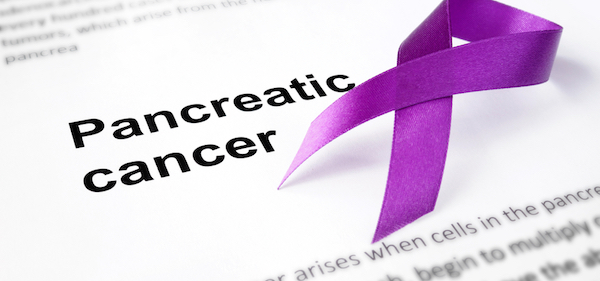Pancreatic cancer has one of the highest mortality rates of all major cancers, with only 6.1 per cent of people alive five years after diagnosis,1compared with breast or prostate cancer, where patients have a 90 per cent chance of reaching the five year survival mark.2,3 This is attributed to increased awareness, early detection and extensive research, including clinical trials.
We know how important it is to check for these well-known cancers. But what about pancreatic cancer?
Over 3030 men and women are diagnosed with pancreatic cancer in Australia each year, and over 2710 don’t survive.2
November is Pancreatic Cancer Awareness Month, and so the Pancare Foundation is encouraging all Australians to increase their awareness of the symptoms of pancreatic cancer as part of their self-management for good health.
Pancreatic cancer is known as the ‘silent killer’. Most patientsdon’t show any symptoms until the cancer is well advanced,where it is possibly large enough to touch the other organs near the pancreas.
Symptoms are often vague and easily confused with other diseases and may include:
- jaundice (yellowing of the skin, eyes and urine)
- pain in the upper abdomen (a dull ache, sensation of bloating or fullness, or a burning type of discomfort)
- lack of appetite, nausea and weight loss
- a sudden change in blood sugars or onset of diabetes
- a change in bowel movements, from severe diarrhea to constipation.
Having one or more of these symptoms does not necessarily mean you have pancreatic cancer, but they are important signs to discuss with your doctor. And all Australiansover the age of 50 in particular, should become more aware of these symptoms, as, by 2030,it is expected to be the second-most common cause of cancer death.
Factors that can increase your chance of pancreatic cancer are:
- smoking (2–3 times increased risk)
- obesity
- a history of chronic pancreatitis (long-term inflammation of the pancreas)
- diabetes
- age (commonly diagnosed over the age of 65).
Keeping a healthy lifestyle, and eating plenty of fruits and vegetables and foods with high folate content may help to protect you against pancreatic cancer.
Please visit your GPif you believe you are experiencing any of the symptoms for pancreatic cancer.
Read more about the symptoms of pancreatic cancer at www.pancare.org.au
Pancare is a not-for-profit organisation established to increase the survival rates from pancreatic, liver, biliary, oesophageal and stomach cancers, and support people affected by these cancers. Donations are always welcome.
Article sources
- Breakthroughs in Pancreatic Cancer, Garvan Research Foundation (June 2015)
- Australian Institute of Health and Welfare 2014. Cancer in Australia: an overview, 2014. Cancer series no. 78. Cat. no. CAN 75. Canberra: AIHW.
- Cancer Council Australia, Prostate Cancer

